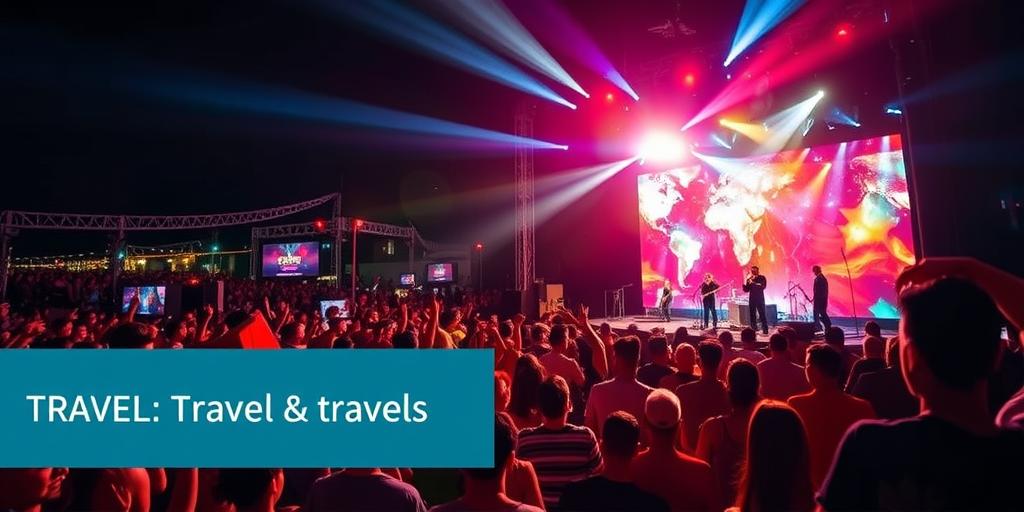The Resurgence of Music Tourism in 2025
Music tourism, the act of traveling to experience live music events and explore musical heritage, is poised for a significant comeback in 2025. After facing unprecedented challenges in recent years, the industry is adapting and innovating to meet the evolving demands of music enthusiasts. This article explores the factors driving this resurgence, key trends to watch, and the potential economic and cultural impacts.
Factors Fueling the Comeback
Several factors are contributing to the anticipated resurgence of music tourism:
- Pent-Up Demand: Following periods of travel restrictions and event cancellations, there’s a strong desire among music fans to attend live performances and reconnect with the communal experience of music.
- Innovative Event Formats: Music festivals and events are evolving to offer more diverse and immersive experiences. This includes incorporating elements of art, food, and technology to create holistic cultural destinations.
- Enhanced Safety Measures: The implementation of robust health and safety protocols is crucial for restoring traveler confidence. Venues and events are investing in measures such as enhanced sanitation, contactless ticketing, and capacity management.
- Digital Integration: Technology plays a pivotal role in enhancing the music tourism experience. From virtual reality concerts to interactive venue maps, digital tools are creating new ways for fans to engage with music and destinations.
Key Trends to Watch
As music tourism rebounds, several key trends are emerging:
- Hyper-Local Music Experiences: Travelers are increasingly seeking out authentic, local music scenes. This includes exploring smaller venues, supporting independent artists, and participating in community-based music events.
- Sustainable Tourism Practices: Environmental consciousness is growing among travelers. Music events and destinations are adopting sustainable practices to minimize their ecological footprint. This includes reducing waste, promoting eco-friendly transportation, and supporting local communities.
- Personalized Music Itineraries: Travelers are leveraging technology to create personalized music itineraries based on their preferences. This includes using data analytics to recommend events, venues, and experiences tailored to individual tastes.
- Rise of Niche Music Festivals: There is a growing interest in specialized music festivals that cater to specific genres or subcultures. These niche events offer unique and immersive experiences for dedicated fans.
Economic and Cultural Impacts
The resurgence of music tourism has significant economic and cultural implications:
- Economic Growth: Music tourism generates revenue for local businesses, supports employment opportunities, and contributes to the overall economic growth of destinations.
- Cultural Preservation: By attracting visitors and generating revenue, music tourism helps preserve and promote local musical heritage and traditions.
- Community Development: Music events and festivals can foster community pride, create social cohesion, and provide opportunities for local artists and businesses to showcase their talents.
- Cross-Cultural Exchange: Music tourism facilitates cross-cultural exchange by bringing together people from diverse backgrounds to share their love of music and explore different cultures.
Conclusion
The comeback of music tourism in 2025 is driven by pent-up demand, innovative event formats, enhanced safety measures, and digital integration. As the industry rebounds, key trends such as hyper-local experiences, sustainable practices, personalized itineraries, and niche festivals are shaping the future of music travel. The resurgence of music tourism has the potential to generate significant economic growth, preserve cultural heritage, foster community development, and facilitate cross-cultural exchange.
